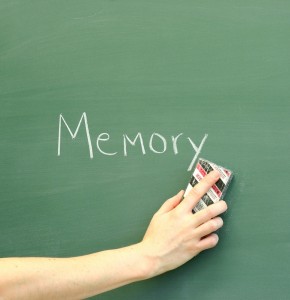Very interesting results have come to light following a research on why people tend to forget things when they pass through a doorway. According to the study, the mere action of walking through the doorway triggers an action in the brain that causes the purpose of the visit to be stored away in the brain. Owing to this, the reason for visit slips out of a person’s mind temporarily. The research was carried out by Gabriel Radvansky, a professor in the University of Notre Dame, Indiana, at the department of Psychology.
According to the research, a doorway acts as a demarcation between one space and another amd merely making the transition from one space to the other through the doorway causes the brain to separate the memory and store it away. This compartmentalization by the brain makes it difficult to immediately recall the purpose of visit. The researchers have been carrying on experiments and studies on this subject and have come to know that a brief reduction in memory power occurs when a person crosses into another space. This is also called as the “location updating effect”.

In an attempt to find out whether the space itself and its characteristics had an impact on this loss of purpose, researchers carried out the study by means of three experiments. These experiments were carried out in both virtual and real environments. Virtual environments were created by means of taking a person through different spaces on a computer screen. The participants of the study were college students. The change in their memory was measured by giving them things to do when they moved from one space into another through a defined doorway.
In the first experiments, small screens were used and the impact of the space was lower. Students were asked to do things in two modes – one when changing spaces through a doorway and the other without a doorway. The distance covered was the same in both cases. It was found that forgetfulness was higher when a doorway was involved. The second experiment consisted of real world experience. The results were same as in the first experiment. In the third experiment, students were tested whether passing through the different doorways and coming back to the place where they had begun would also cause the same loss of memory. Results depicted that loss of memory occurred even in the third environment. It was thus concluded that brain compartmentalizes things when a doorway is involved and hence, loss of purpose occurs.